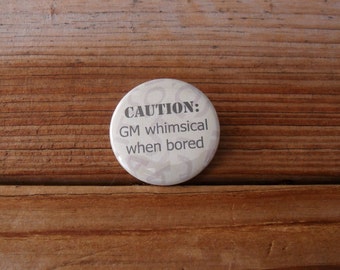A friend recently posed me the following question,
"What do you consider are the key components to an old school game?"Now, despite being perfectly happy to use 5th edition D&D or Pathfinder rulesets, I tend to think of and describe myself as an "Old-school" DM, but that is a very loaded term, which means a lot of different things to different people. For some it means "any system older than X" (usually older than 2000 or older than AD&D 2nd edition or whatever arbitary cutoff for "not oldschool" they have). Others might define it by technological simplicity (no tablets or laptops at the table, pen and paper only). Others think of "dungeon crawls" and the lack of an epic plot/storyline, or high body counts, or an excess of randomness and whimsy. I'm not sure I completely agree with any of them...
So, in the vein of some of my posts about DMing style, GM questionnaires, and other general answering of questions, here are my thoughts about what makes a game "Old School" (for me at least...which also translates to "what is important in my games"...
0) Rulings over Rules. System/Version/RAW does not matter. Books are not consulted at the table. The DM is the final arbiter of all rules. The DM and players should feel free to propose house rules and system-hacks as necessary. If you are strictly adhering to any rules system then you are doing it wrong...
1) DM acts as a neutral arbiter. If the dice / random table say something happens, it happens, even if that something will result in a TPK or completely derail the campaign (random ancient red dragon vs. 1st-level party). He is neither an ally nor opponent of the players.
2) The PCs are not the center of the world. The world is not scaled to their level. 1st-level PCs may encounter 20HD dragon and 20th-level PCs may encounter a handful of 1/2 HD goblins. Major events may happen regardless of the PCs actions. Some events may happen that the PCs have no control over or hope of preventing.
3) PCs are expendable. The story is not about a specific PC (or even specific group of PCs), and they should expect deaths to happen and be ready with a new character(s) to replace the lost one(s).
4) PCs are more than the sum of their stats. Players are expected to solve puzzles and explain their characters actions. Good role-playing will succeed even when the stats suck, while bad role-playing will fail even with min-maxed stats. If the player cannot describe how he is searching the room, he will probably fail to find the thing he is searching for. Likewise, if the player can describe what his character is attempting, he can do the thing even if there is not anything on the character sheet saying that he can.
5) NPC reactions are role-played. A skill cannot accomplish the interaction for you. You have to actually discuss/negotiate/compromise with the NPCs to be "diplomatic" (see #4). If you cannot describe how you threaten the NPC, no amount of "Intimidation" skill will help you.
6) Resources are limited and the PCs are expected to manage their resources. Spells are finite (no "at will" power nonsense). Ammo is usually not recoverable. Weapons and armor break. Food is necessary. Sometimes you have to make do with what you have.
7) Magic Items are not for sale, nor are they dropped specifically for your character (see #2 above). PCs must learn to appreciate and make use of the items they find (see #6). Likewise, the creation of magic items should be an adventure unto itself, not a simple "I spend some time and money" downtime event.
8) "Character Concept" is not sacrosanct. Your character may be changed. Their alignment, race, gender, class, and even their memory of those things may be altered by magic. The player must be able adapt to the changing nature of reality (see #3).
9) Theater of the Mind rules. No miniatures or battlemats. No tactical "this hit moves you back a space" nonsense. No complex calculations or overlays for whether or not you are in the area of a spell. RPGs are not "miniatures skirmish games". The players describe their actions and they happen as described. The rules should not dictate or limit what the character's options are in combat (see #0 and #4 above), nor should "the grid" limit their sense of excitement or freedom to describe things "cinematically".
10) You go where you want. There are no rails. PCs are people with free agency. The PCs are free to travel anywhere in the world and pursue (or not pursue) any plot-hook they wish. They can choose to ignore the BBEG and run away, repeatedly if necessary, but may still have to face the consequences in the future (see #2). PCs are only heroes if they choose to be.
11) There is also a matter of Scale with old-school vs. modern fantasy games. Old-school has a more local focus. PCs in old-school fantasy games are not super-heroes who have to be stopping the world-destroying comet-collison every single adventure. Even if you are a 20th-level, plane-hopping, meteor-swarm-summoning, badass wizard, you are likely more concerned with saving a city rather than the whole world, or exploring a single dungeon rather than all of the Abyss. You are just as powerful and heroic, but without the "Only the PCs can save all of humanity" narcissistic complex of modern campaigns (see #2 above).
This also relates to the Domain-level rules in most older editions of D&D. You build a castle and get followers around level 9-10 specifically so that you have your own little fiefdom to care about and save for the next 10 levels, rather than having to worry about the whole of reality.
There you go a d12 - 1 worth of things that make a game "Old School", in my humble opinion.


No comments:
Post a Comment